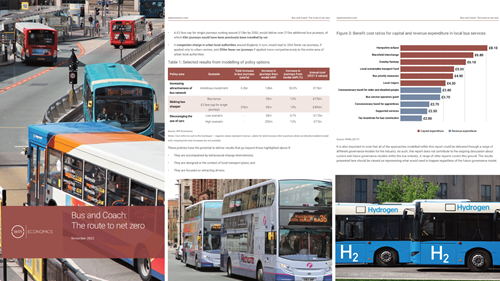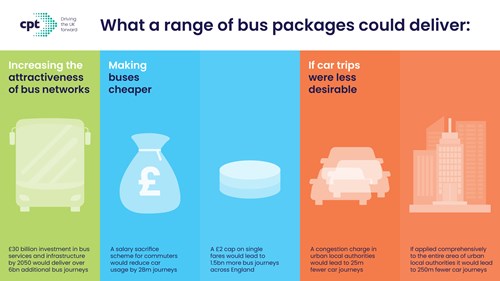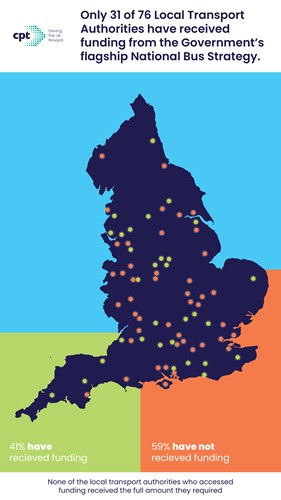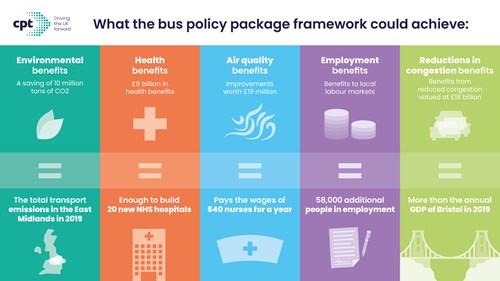Bus and Coach: The route to net zero
The Confederation of Passenger Transport, the trade body for the bus and coach industry, has commissioned WPI Economics to analyse the role that switching car journeys to bus and coach journeys (”modal shift") may have in achieving the country’s Net Zero emissions goal.
Read the report in full
Download the executive summary
Modal shift: necessary, desirable and possible
The first report of this project established that modal shift was necessary for the UK to meet its Net Zero obligations. The shift is possible based on the existing evidence, and desirable because of the significant benefits that come from it.
We estimated that across Great Britain the modal shift required would amount to only two more trips by bus per person per month (26 per year). However, this would need to be delivered against the backdrop of a trend of an 11% decline in bus patronage per decade over the last four decades. From that relatively low base, in order to support the country’s Net Zero ambitions, the scale of increase in patronage driven by modal shift would amount to an 82% increase in bus journeys across Great Britain by 2050 (a 25% increase per decade up to 2050).
In this context, it is clear that while this is achievable, piecemeal interventions will not deliver the scale of change required. Instead, an ambitious strategy will be needed. This will need to provide certainty and leadership, and establish a shared set of goals under which different levels of administration can work together.



